Fleurs du Mal Magazine


Cupid Drowned
T’other day as I was twining
Roses, for a crown to dine in,
What, of all things, ‘mid the heap,
Should I light on, fast asleep,
But the little desperate elf,
The tiny traitor, Love, himself!
By the wings I picked him up
Like a bee, and in a cup
Of my wine I plunged and sank him,
Then what d’ye think I did?—I drank him.
Faith, I thought him dead. Not he!
There he lives with tenfold glee;
And now this moment with his wings
I feel him tickling my heart-strings.
James Henry Leigh Hunt
(1784 – 1859)
Cupid Drowned
From: Poems That Every Child Should Know
• fleursdumal.nl magazine
More in: # Classic Poetry Archive, Archive G-H, Archive G-H, Hunt, Leigh
The Dying Slave
Faint-gazing on the burning orb of day,
When Afric’s injured son expiring lay,
His forehead cold, his labouring bosom bare,
His dewy temples, and his sable hair,
His poor companions kissed, and cried aloud,
Rejoicing, whilst his head in peace he bowed:—
Now thy long, long task is done,
Swiftly, brother, wilt thou run,
Ere to-morrow’s golden beam
Glitter on thy parent stream,
Swiftly the delights to share,
The feast of joy that waits thee there.
Swiftly, brother, wilt thou ride
O’er the long and stormy tide,
Fleeter than the hurricane,
Till thou see’st those scenes again,
Where thy father’s hut was reared,
Where thy mother’s voice was heard;
Where thy infant brothers played
Beneath the fragrant citron shade;
Where through green savannahs wide
Cooling rivers silent glide,
Or the shrill cicalas sing
Ceaseless to their murmuring;
Where the dance, the festive song,
Of many a friend divided long,
Doomed through stranger lands to roam,
Shall bid thy spirit welcome home!
Fearless o’er the foaming tide
Again thy light canoe shall ride;
Fearless on the embattled plain
Thou shalt lift thy lance again;
Or, starting at the call of morn,
Wake the wild woods with thy horn;
Or, rushing down the mountain-slope,
O’ertake the nimble antelope;
Or lead the dance, ‘mid blissful bands,
On cool Andracte’s yellow sands;
Or, in the embowering orange-grove,
Tell to thy long-forsaken love
The wounds, the agony severe,
Thy patient spirit suffered here!
Fear not now the tyrant’s power,
Past is his insulting hour;
Mark no more the sullen trait
On slavery’s brow of scorn and hate;
Hear no more the long sigh borne
Murmuring on the gales of morn!
Go in peace; yet we remain
Far distant toiling on in pain;
Ere the great Sun fire the skies
To our work of woe we rise;
And see each night, without a friend,
The world’s great comforter descend!
Tell our brethren, where ye meet,
Thus we toil with weary feet;
Yet tell them that Love’s generous flame,
In joy, in wretchedness the same,
In distant worlds was ne’er forgot;
And tell them that we murmur not;
Tell them, though the pang will start,
And drain the life-blood from the heart,—
Tell them, generous shame forbids
The tear to stain our burning lids!
Tell them, in weariness and want,
For our native hills we pant,
Where soon, from shame and sorrow free,
We hope in death to follow thee!
William Lisle Bowles
(1762 – 1850)
The Dying Slave
• fleursdumal.nl magazine
More in: # Classic Poetry Archive, *Archive African American Literature, Archive A-B, Archive A-B, Black Lives Matter, Racism

The Ecstasy
Where, like a pillow on a bed
A pregnant bank swell’d up to rest
The violet’s reclining head,
Sat we two, one another’s best.
Our hands were firmly cemented
With a fast balm, which thence did spring;
Our eye-beams twisted, and did thread
Our eyes upon one double string;
So to’intergraft our hands, as yet
Was all the means to make us one,
And pictures in our eyes to get
Was all our propagation.
As ‘twixt two equal armies fate
Suspends uncertain victory,
Our souls (which to advance their state
Were gone out) hung ‘twixt her and me.
And whilst our souls negotiate there,
We like sepulchral statues lay;
All day, the same our postures were,
And we said nothing, all the day.
If any, so by love refin’d
That he soul’s language understood,
And by good love were grown all mind,
Within convenient distance stood,
He (though he knew not which soul spake,
Because both meant, both spake the same)
Might thence a new concoction take
And part far purer than he came.
This ecstasy doth unperplex,
We said, and tell us what we love;
We see by this it was not sex,
We see we saw not what did move;
But as all several souls contain
Mixture of things, they know not what,
Love these mix’d souls doth mix again
And makes both one, each this and that.
A single violet transplant,
The strength, the colour, and the size,
(All which before was poor and scant)
Redoubles still, and multiplies.
When love with one another so
Interinanimates two souls,
That abler soul, which thence doth flow,
Defects of loneliness controls.
We then, who are this new soul, know
Of what we are compos’d and made,
For th’ atomies of which we grow
Are souls, whom no change can invade.
But oh alas, so long, so far,
Our bodies why do we forbear?
They’are ours, though they’are not we; we are
The intelligences, they the spheres.
We owe them thanks, because they thus
Did us, to us, at first convey,
Yielded their senses’ force to us,
Nor are dross to us, but allay.
On man heaven’s influence works not so,
But that it first imprints the air;
So soul into the soul may flow,
Though it to body first repair.
As our blood labors to beget
Spirits, as like souls as it can,
Because such fingers need to knit
That subtle knot which makes us man,
So must pure lovers’ souls descend
T’ affections, and to faculties,
Which sense may reach and apprehend,
Else a great prince in prison lies.
To’our bodies turn we then, that so
Weak men on love reveal’d may look;
Love’s mysteries in souls do grow,
But yet the body is his book.
And if some lover, such as we,
Have heard this dialogue of one,
Let him still mark us, he shall see
Small change, when we’are to bodies gone.
John Donne
(1572–1631)
The Ecstasy
• fleursdumal.nl magazine
More in: Archive C-D, Archive C-D, Donne, John

I Shall Not Care
When I am dead and over me bright April
Shakes out her rain-drenched hair,
Tho’ you should lean above me broken-hearted,
I shall not care.
I shall have peace, as leafy trees are peaceful
When rain bends down the bough,
And I shall be more silent and cold-hearted
Than you are now.
Sara Teasdale
(1884-1933)
I Shall Not Care
• fleursdumal.nl magazine
More in: #Editors Choice Archiv, Archive S-T, Archive S-T, Teasdale, Sara

Fame is a bee
Fame is a bee.
It has a song—
It has a sting—
Ah, too, it has a wing.
Emily Dickinson
(1830-1886)
Fame is a bee (1788)
• fleursdumal.nl magazine
More in: Archive C-D, Archive C-D, Dickinson, Emily
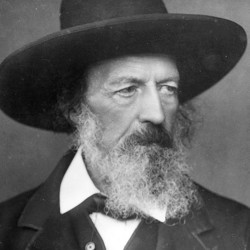
Ask me no more
Ask me no more: the moon may draw the sea;
The cloud may stoop from heaven and take the shape,
With fold to fold, of mountain or of cape;
But O too fond, when have I answer’d thee?
Ask me no more.
Ask me no more: what answer should I give?
I love not hollow cheek or faded eye:
Yet, O my friend, I will not have thee die!
Ask me no more, lest I should bid thee live;
Ask me no more.
Ask me no more: thy fate and mine are seal’d:
I strove against the stream and all in vain:
Let the great river take me to the main:
No more, dear love, for at a touch I yield;
Ask me no more.
Alfred Lord Tennyson
(1809-1892)
Ask me no more
• fleursdumal.nl magazine
More in: Archive S-T, Archive S-T, Tennyson, Alfred Lord
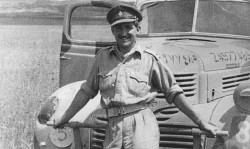
How to Kill
Under the parabola of a ball,
a child turning into a man,
I looked into the air too long.
The ball fell in my hand, it sang
in the closed fist: Open Open
Behold a gift designed to kill.
Now in my dial of glass appears
the soldier who is going to die.
He smiles, and moves about in ways
his mother knows, habits of his.
The wires touch his face: I cry
NOW. Death, like a familiar, hears
and look, has made a man of dust
of a man of flesh. This sorcery
I do. Being damned, I am amused
to see the centre of love diffused
and the wave of love travel into vacancy.
How easy it is to make a ghost.
The weightless mosquito touches
her tiny shadow on the stone,
and with how like, how infinite
a lightness, man and shadow meet.
They fuse. A shadow is a man
when the mosquito death approaches.
Keith Douglas
(1920 – 1944)
How to Kill
• fleursdumal.nl magazine
More in: Archive C-D, Archive C-D, Douglas, Keith, WAR & PEACE

Comme surpris
Comme surpris
Et entrepris
De vostre amour,
Je me rens pris
En vo pourpris,
Dame d’onnour.
Si ne mespris
Quant j’entrepris
Si haulte honnour
Comme surpris.
Mais en despris
Ne m’ait le pris
De vo valour;
Car j’ay apris
Les biens compris
En vo doulçour
Comme surpris.
Christine de Pisan
(1364/1365 – 1430)
Comme surpris
Rondeaux
• fleursdumal.nl magazine
More in: # Classic Poetry Archive, Archive O-P, Archive O-P, Pisan, Christine de, The Ideal Woman

In der Sistina
In der Sistine dämmerhohem Raum,
Das Bibelbuch in seiner nerv’gen Hand,
Sitzt Michelangelo in wachem Traum,
Umhellt von einer kleinen Ampel Brand.
Laut spricht hinein er in die Mitternacht,
Als lauscht’ ein Gast ihm gegenüber hier,
Bald wie mit einer allgewalt’gen Macht,
Bald wieder wie mit seinesgleichen schier:
»Umfaßt, umgrenzt hab ich dich, ewig Sein,
Mit meinen großen Linien fünfmal dort!
Ich hüllte dich in lichte Mäntel ein
Und gab dir Leib, wie dieses Bibelwort.
Mit wehnden Haaren stürmst du feurigwild
Von Sonnen immer neuen Sonnen zu,
Für deinen Menschen bist in meinem Bild
Entgegenschwebend und barmherzig du!
So schuf ich dich mit meiner nicht’gen Kraft:
Damit ich nicht der größre Künstler sei,
Schaff mich – ich bin ein Knecht der Leidenschaft –
Nach deinem Bilde schaff mich rein und frei!
Den ersten Menschen formtest du aus Ton,
Ich werde schon von härterm Stoffe sein,
Da, Meister, brauchst du deinen Hammer schon,
Bildhauer Gott, schlag zu! Ich bin der Stein.«
Conrad Ferdinand Meyer
(1825 – 1898)
In der Sistina
• fleursdumal.nl magazine
More in: # Classic Poetry Archive, Archive M-N, Archive M-N
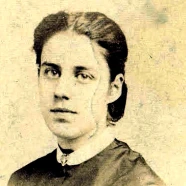
Age and Death
Come closer, kind, white, long-familiar friend,
Embrace me, fold me to thy broad, soft breast.
Life has grown strange and cold, but thou dost bend
Mild eyes of blessing wooing to my rest.
So often hast thou come, and from my side
So many hast thou lured, I only bide
Thy beck, to follow glad thy steps divine.
Thy world is peopled for me; this world’s bare.
Through all these years my couch thou didst prepare.
Thou art supreme Love—kiss me—I am thine!
Emma Lazarus
(1849 – 1887)
Age and Death
From: Selected Poems
• fleursdumal.nl magazine
More in: Archive K-L, Archive K-L, Lazarus, Emma
William Blake’s Universe
until 19 May 2024
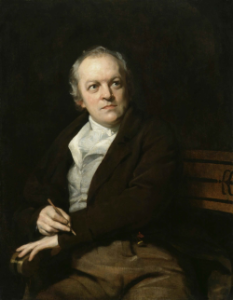 Discover William Blake’s universe and a constellation of European artists seeking spirituality in their lives and art in response to war, revolution and political turbulence.
Discover William Blake’s universe and a constellation of European artists seeking spirituality in their lives and art in response to war, revolution and political turbulence.
Sometimes seen as an eccentric figure or lone genius, William Blake’s Universe is the first exhibition to explore Blake’s boundless imagination in the context of wider trends and themes in European art including romanticism, mysticism and ideas of spiritual regeneration.
This timely new exhibition brings together the largest-ever display of works by the radical British artist, printmaker and poet from our own collection, alongside artworks by his European contemporaries such as the German romantic painters Philipp Otto Runge and Caspar David Friedrich – many of which have never been displayed publicly in the UK until now.
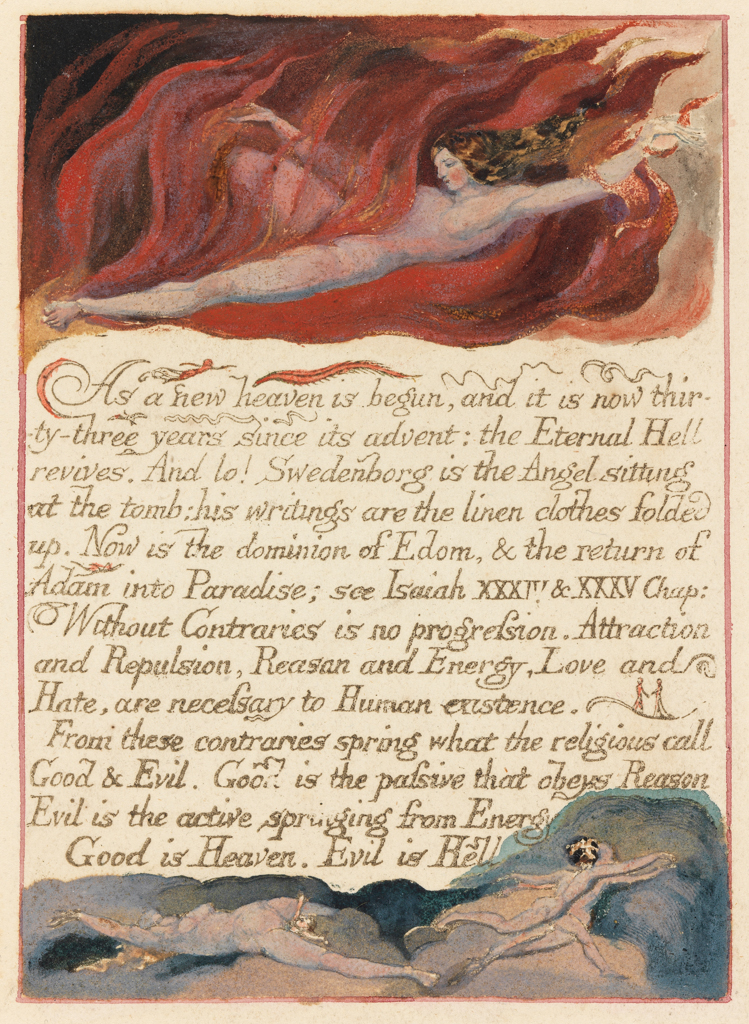
Though these artists never met or connected in their lifetimes, Blake, Runge and Friedrich shared a strong sense of individuality and an unwavering belief in the power of art to redeem a society in crisis.
William Blake’s Universe
until 19 May 2024
University of Cambridge Museums
The Fitzwilliam Museum
Trumpington Street
Cambridge
CB2 1RB
Tel: +44 (0)1223 333 230
Email: tickets@museums.cam.ac.uk
• fleursdumal.nl magazine
More in: Archive A-B, Archive A-B, Art & Literature News, Blake, William, Literary Events
En écho au mouvement « Femme, Vie, Liberté », 16 femmes iraniennes livrent ici leurs témoignages.
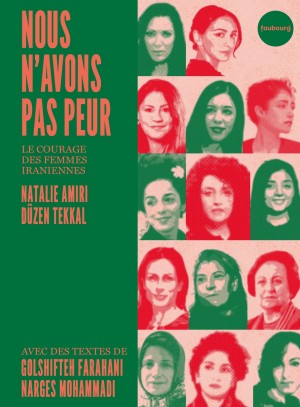 Ces voix s’élèvent parfois depuis l’exil, parfois depuis des cellules de prison. Elles parlent d’une vie sans droits contrôlée par la police des mœurs, d’humiliations, de mise sous tutelle et de détresse économique.
Ces voix s’élèvent parfois depuis l’exil, parfois depuis des cellules de prison. Elles parlent d’une vie sans droits contrôlée par la police des mœurs, d’humiliations, de mise sous tutelle et de détresse économique.
Mais aussi d’une nouvelle génération, d’une révolution que plus rien ne pourra arrêter, de libertés qui se gagnent pas à pas et de l’incroyable résilience du peuple iranien. Leurs textes sont bouleversants, remplis de larmes et porteurs d’espoir. Leur bravoure est une leçon d’humanité.
Avec les témoignages de : Golshifteh Farahani, Ghazal Abdollahi, Parastou Forouhar, Shohreh Bayat, Shila Behjat, Ani, Nargess Eskandari-Grünberg, Fariba Balouch, Rita Jahanforuz, Jasmin Shakeri, Shirin Ebadi, Masih Alinejad, Narges Mohammadi, Nazanin Boniadi, Nasrin Sotoudeh, Leily.
Traduit de l’allemand par Mathilde Ramadier, sauf pour le témoignage de Golshifteh Farahani, recueilli par Sophie Caillat.
Nous n’avons pas peur
Le courage des femmes iraniennes
Natalie Amiri & Düzen Tekkal
Avec le témoignage de Golshifteh Farahani
Traduction : Mathilde Ramadier
Editions du Faubourg
ISBN : 9782493594686
Publié le 1 mars 2024
208 pages
140 x 190 mm
Acheter le livre en librairie au prix de € 18,-
• fleursdumal.nl magazine
More in: #Editors Choice Archiv, - Book News, - Book Stories, - Bookstores, Archive A-B, Archive S-T, Banned Books, Feminism, Persian Art, REPRESSION OF WRITERS, JOURNALISTS & ARTISTS
Thank you for reading Fleurs du Mal - magazine for art & literature